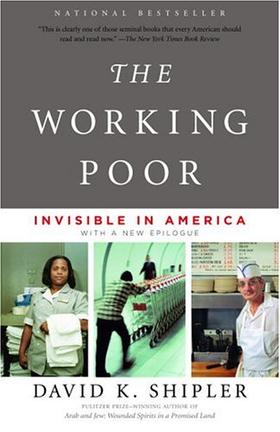Challenges against certain school books have been dropped and new policies have been put in place in a Dallas area school district. The new polices come into place following months of warring between concerned parents of the Dallas metro area Highland Park High School and the Highland Park Independent School District (ISD).
On February 5, the final book challenge was suddenly withdrawn by district parent Meg Bakich. She sought to have the non-fiction The Working Poor: Invisible in America removed from the Advanced Placement English Literature reading list. Bakich cited distrust of the review process as her reason for dropping the challenge. Earlier in the school year, concerns had been raised about the thematic content of seven books, fiction and non-fiction. All of these books were challenged and later reinstituted on the reading list which Breitbart Texas previously reported.
At their February 10 meeting, the Highland Park ISD Board of Trustees approved unanimously new how-to policies for the district’s book selection process and handling of parent objections in future challenges. The goal was to “strike a balance among parents with different views about what’s appropriate for teens,” according to the Dallas Morning News,
Those kinds of concerns over appropriateness are valid. In Pennsylvania, eighth graders got a graphic word search puzzle assignment that was based on the erotic novel Fifty Shades of Grey, according to a FOX News report. Among the words that students had to find were bondage, control, demons, dominant, handcuffs, leather cuffs, obedience, paddling, sensuality and submissive.
Parents were outraged. FOX News also reported that a Pennsylvania school board member chalked up the incident to a mistake made by the teacher. Interestingly, the very same comment about teacher error was what Breitbart Texas was told and reported on last year when inquiring about Common Core worksheets that were popping up in Texas classrooms.
Not everyone walked away happy from the Highland Park ISD school board meeting. While some parents “commended the policy changes” others said “the district had to work hard to regain trust,” also according to the Dallas Morning News. Trustee Paul Rowsey was quoted by the news outlet as saying that they could work for months on a resolution but would fail “trying to achieve absolute perfection.” He insisted that it was time to move forward.
That they did. Among the new policy revisions that were put in place on book selection criteria was the provision that staff “shall place principle above personal opinion and reason above prejudice in the selection of materials of the highest quality in order to ensure a comprehensive collection that is appropriate for the school community.”
School district staff members will also be required to make sure that books “are evaluated as a whole and selected for their strengths rather than rejected for their weaknesses.” Those selections “shall not contain excessive or gratuitous explicit sexuality, excessive or gratuitous profanity, or excessive or gratuitous graphic violence.”
The reading list will post online before the school year begins and anyone who objects to the materials chosen can file a challenge up to 21 days after the date of its posting, which means parents will need to know what that posting date shall be to be able to comply within the deadline. There were also new rules for literature selection. Faculty’s reading choices must “provide balanced information on opposing sides of controversial issues” so that “students may develop under guidance the skill of critical analysis.”
Reconsideration committees “shall weigh the strengths and weakness of the challenged material as a whole rather than on passages or sections taken out of context” and if they decide to restrict the use of a challenged book, a parent of a student who is in the relevant class or preregistered for the class will have the right to appeal, according to the Dallas Morning News coverage.
Parents of students grades 9-12 will be kept abreast of potential English Lit class selections made in the district. The district pointed out that every parent and student have the “right to request alternative reading and this will be done so without penalty towards the student.”
English Department teachers will not work from an approved book list but instead “propose course books that will go through an approval process. If they anticipate controversy, a literature review committee of district employees can refer the book to a community feedback group for extra input.”
However, parent Tavia Hunt told the Dallas Morning News she had lost faith in district leaders and pulled her daughter from the high school. “She believes the committees chosen to review challenged books are ‘stacked’ with people who support the status quo.”
Superintendent Dawson Orr disagreed that “people who volunteer for the committees — including parents, teachers and staff members — would bring their biases and prejudice and would act in bad faith.”
However, as the gulf widens between what schools and parents, respectively, teach and think about what is age appropriate content, these new policies may be equally subject to scrutiny as were the district’s previous procedures. Those original concerns about the seven books were raised by parents over serious content matter issues that included sex scenes, and references to incest, rape, abortion and abuse.
Follow Merrill Hope on Twitter @OutOfTheBoxMom.

COMMENTS
Please let us know if you're having issues with commenting.